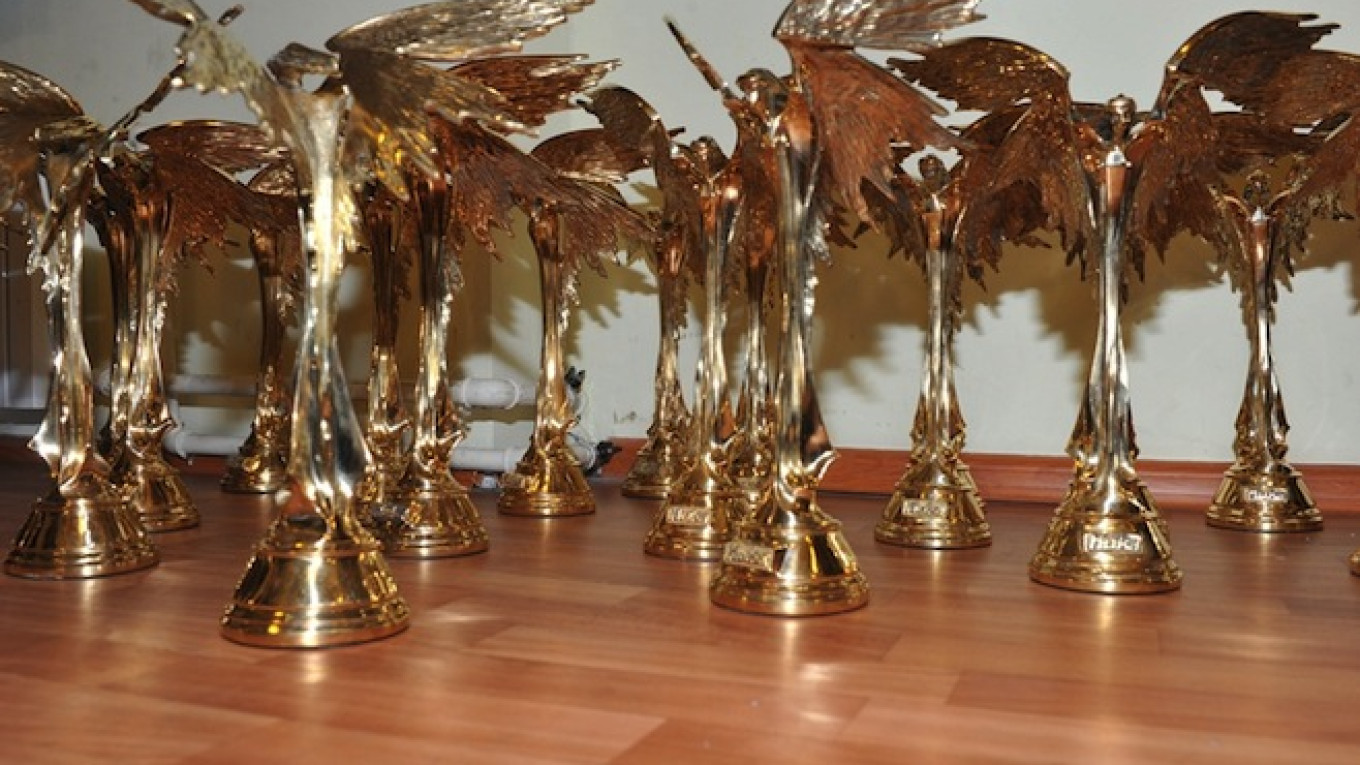A Ukrainian film entirely in sign language and a Russian film nearly 20 years in the making have taken top honors at the Nika Awards ceremony, held Tuesday night in Moscow, Russian media reported. ? ?
“The Tribe,” an all-sign-language film about a school for the deaf by Ukrainian director Myroslav Slaboshpytskiy won the Nika for best film from the Commonwealth of Independent States and the Baltics, while Alexei German's “Hard to Be a God” was named the best Russian film of the year. ? ?
“Hard to Be a God,” which is based on a novel by Russia's famed science fiction writers Arkady and Boris Strugatsky, was German's last film. He began work on it in the 1980s and it was still in production when he died in 2013.?
The film was finished by the director's widow, screenwriter Svetlana Karmalita, and his son, director Alexei German, Jr. Karmalita accepted the best picture award as well as the best director award, which was awarded to German posthumously. ? ?
“The Tribe,” which features deaf actors and is produced entirely in sign language without close captioning, also won the Critics' Week grand prize in Cannes last year. ? ?
Slaboshpytskiy did not attend the award ceremony, citing a busy schedule working on his next film, but sent a letter expressing support for fellow Ukrainian filmmaker Oleg Sentsov, who is jailed in Russia on terrorism charges, Ekho Moskvy reported. ? ?
Sentsov, an outspoken critic of Russia's annexation of Crimea from Ukraine, was detained at his home in the region last May. Moscow accuses him of colluding with Ukraine's ultranationalist group Right Sector in a plot to plant bombs in the regional capital, Simferopol. ? ?
Other Nika awards went to Yelena Lyadova as best actress for her role in Andrei Zvyagintsev's award-winning film “Leviathan,” and Leonid Yarmolnik as best actor for his role in “Hard to Be a God,” Russian media reports said. ? ?
Established in 1987, the Nika awards are Russia's oldest film awards and are modeled after the Academy Awards.
A Message from The Moscow Times:
Dear readers,
We are facing unprecedented challenges. Russia's Prosecutor General's Office has designated The Moscow Times as an "undesirable" organization, criminalizing our work and putting our staff at risk of prosecution. This follows our earlier unjust labeling as a "foreign agent."
These actions are direct attempts to silence independent journalism in Russia. The authorities claim our work "discredits the decisions of the Russian leadership." We see things differently: we strive to provide accurate, unbiased reporting on Russia.
We, the journalists of The Moscow Times, refuse to be silenced. But to continue our work, we need your help.
Your support, no matter how small, makes a world of difference. If you can, please support us monthly starting from just $2. It's quick to set up, and every contribution makes a significant impact.
By supporting The Moscow Times, you're defending open, independent journalism in the face of repression. Thank you for standing with us.
Remind me later.


